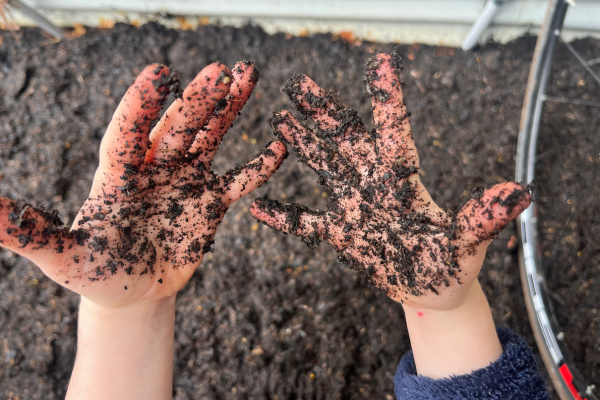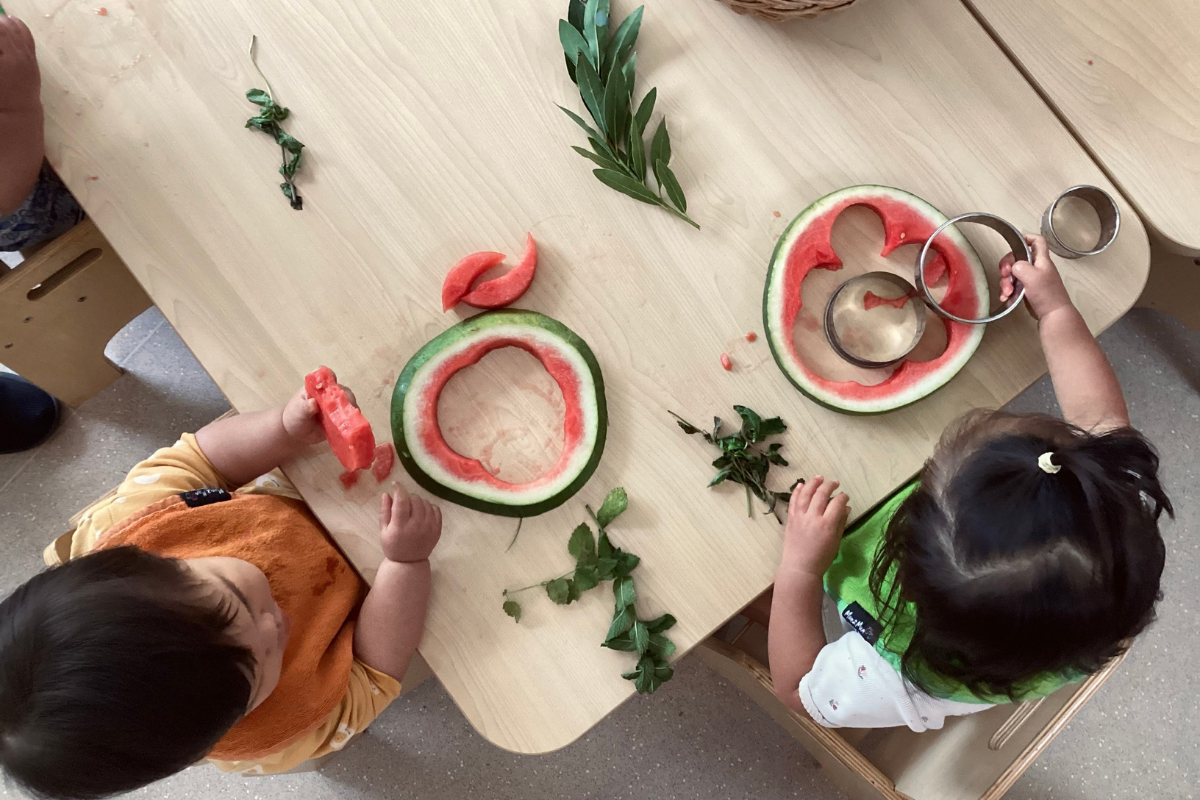About your service
1. Sector: early childhood
2. Where: Victoria/Melbourne
3. Joined the Kitchen Garden Program in: 2015
4. Number of children: 300
Program basics
5. Age levels/groups in program:
I run the program for every classroom at Hawthorn Early Years, catering to children aged 6 months to 5 years.
6. Number of children in program each year:
Approximately 300 - we have 155 children a day
7. How often you run sessions:
Each of the 9 classrooms receives a 45-minute session biweekly. However, there is an expectation that each classroom will naturally integrate the Kitchen Garden Program into their daily routine, including tasks like watering and weeding.
8. Number of staff supporting the program:
I'm the one overseeing the Kitchen Garden Program for the service, and each classroom has a designated kitchen garden representative. So essentially it’s myself and 9 representatives.
10. Number of helpers/volunteers per session:
It’s myself and the supporting teachers in each classroom.
11. Type of garden:
In the Wattle room's outdoor space, we have a garden bed currently cultivating herbs. In Banksia's outdoor area, we've installed a new garden bed with a tall trellis to cover the rainwater tank and support climbing beans. Rock Lily boasts its own small garden bed, where we're presently growing autumn/winter vegetables. Juniors' outdoor space features three main garden beds: one dedicated to a salad bar, another to a vegetable patch, and a third to bee-friendly flowers, with an additional bed now home to a flourishing passion fruit tree. The centrepiece of our kitchen garden is located in the seniors' yard, boasting five substantial garden beds hosting a variety of vegetables, herbs, strawberries, and fruit trees including nectarine, apple, lemon, lime, and fig.
12. Type of kitchen:
We have two kitchen trolleys stocked with kitchen appliances, bowls, and knives. Adjacent to the centre's kitchen is the garden room, which doubles as a dining space for immersive cooking experiences and includes a central cooking bench designed at child height.

Program highlights
13. Your favourite garden activity to run with children:
My favourite gardening activity is simply planting seeds, especially with the juniors. They love to tuck the seeds into their bed of soil and say goodnight as they do so.
14. Your favourite recipe to use with children:
I haven't had the opportunity to explore many recipes yet, as we've only had one cooking experience since I started managing the Kitchen Garden Program in 2024. However, I thoroughly enjoyed planting a pizza herb garden in the Banksia outdoor space. In the following weeks, we used Stephanie Alexander's oven-baked tomato sauce recipe to make homemade pizza sauce. We also crafted pizzas with our very own homemade pizza dough using Stephanie's simple pizza dough recipe.
15. Top learning activity related to the program:
One of my favourite topics to teach children in connection with the garden is about bees and the crucial role they play in pollination! For World Bee Day we'll be creating a bee hotel with the seniors and planting a bee 'supermarket' with the juniors - a garden bed filled with a variety of purple and blue flowers. I've also arranged for the Friends with Honey musical group to perform for the entire centre and I've reached out to a local bee establishment called Honey Sticks, who have generously donated honey samples and beeswax crayons for the children to take home. It's going to be a beautiful celebration!
16. One useful tip or hack that could benefit other members:
I feel incredibly fortunate to have school holidays as an opportunity to prepare for the upcoming term. With four full days spread across two weeks, I can meticulously plan each lesson for our Kitchen Garden Program. One strategy that has proven immensely beneficial is using a calendar on the Shared Table. This allows me to incorporate all the important dates into my planning. For instance, we'll be making Anzac biscuits for Anzac Day, crafting compost jars for Compost Day, celebrating bees for World Bee Day, and blending milk smoothies for World Milk Day, among others.
17. What have been your biggest successes/wins/breakthroughs:
I believe my greatest achievement has been fostering connections with both the local and wider community to fully realise the potential of the kitchen garden program.
18. What impact have you seen on the children over the years they're at the centre?
We've received a lot of positive feedback from families over the years, sharing that their children have developed a passion for gardening through our program. Many have even gone on to set up gardens at home as a result.
19. How do you fuel your passion for the program?
Of course, the support from my workplace and the collaborating teachers is invaluable, but it's truly the children's fascination, curiosity, and sense of wonder that fuel my passion.
20. What have you learnt that you wished you’d known when you started?
I wish I had realised earlier that it's okay if things don't always go as planned, and it's acceptable to supplement from the supermarket if the gardens didn't yield what I needed. Teaching the Kitchen Garden Program has certainly taught me patience and communication skills because I rely on everyone being on board and aligned to run this program effectively. As Stephanie Alexander says, it truly takes a community to drive the Kitchen Garden Program.




